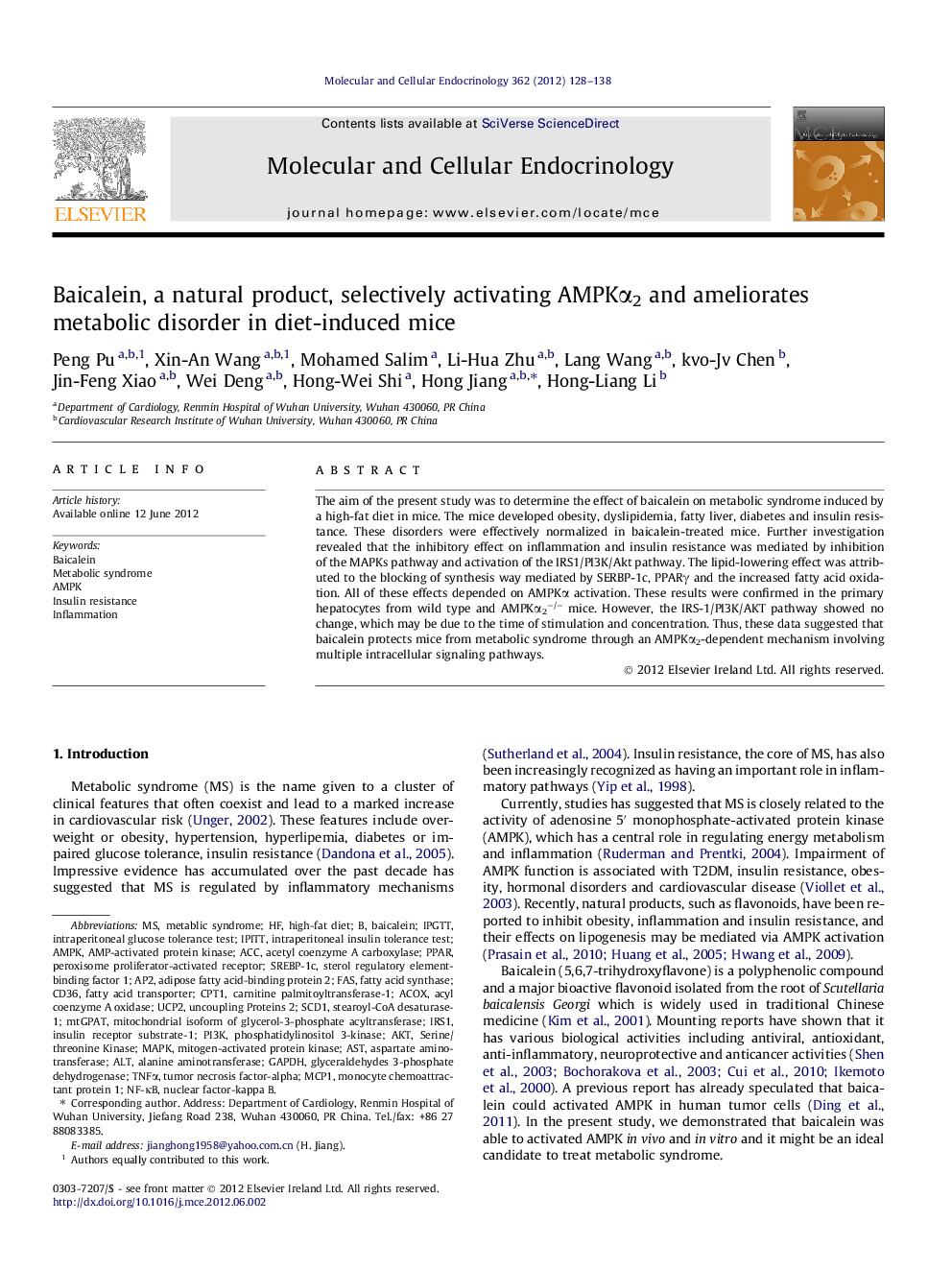| Article ID | Journal | Published Year | Pages | File Type |
|---|---|---|---|---|
| 2196284 | Molecular and Cellular Endocrinology | 2012 | 11 Pages |
The aim of the present study was to determine the effect of baicalein on metabolic syndrome induced by a high-fat diet in mice. The mice developed obesity, dyslipidemia, fatty liver, diabetes and insulin resistance. These disorders were effectively normalized in baicalein-treated mice. Further investigation revealed that the inhibitory effect on inflammation and insulin resistance was mediated by inhibition of the MAPKs pathway and activation of the IRS1/PI3K/Akt pathway. The lipid-lowering effect was attributed to the blocking of synthesis way mediated by SERBP-1c, PPARγ and the increased fatty acid oxidation. All of these effects depended on AMPKα activation. These results were confirmed in the primary hepatocytes from wild type and AMPKα2−/− mice. However, the IRS-1/PI3K/AKT pathway showed no change, which may be due to the time of stimulation and concentration. Thus, these data suggested that baicalein protects mice from metabolic syndrome through an AMPKα2-dependent mechanism involving multiple intracellular signaling pathways.
► Baicalein leads to pleiotropic effects on metabolic syndrome. ► The mechanisms of baicalein on metabolic syndrome are dependent on AMPK activation, which was identified in cells of KO mice. ► Baicalein has no liver toxicity.
